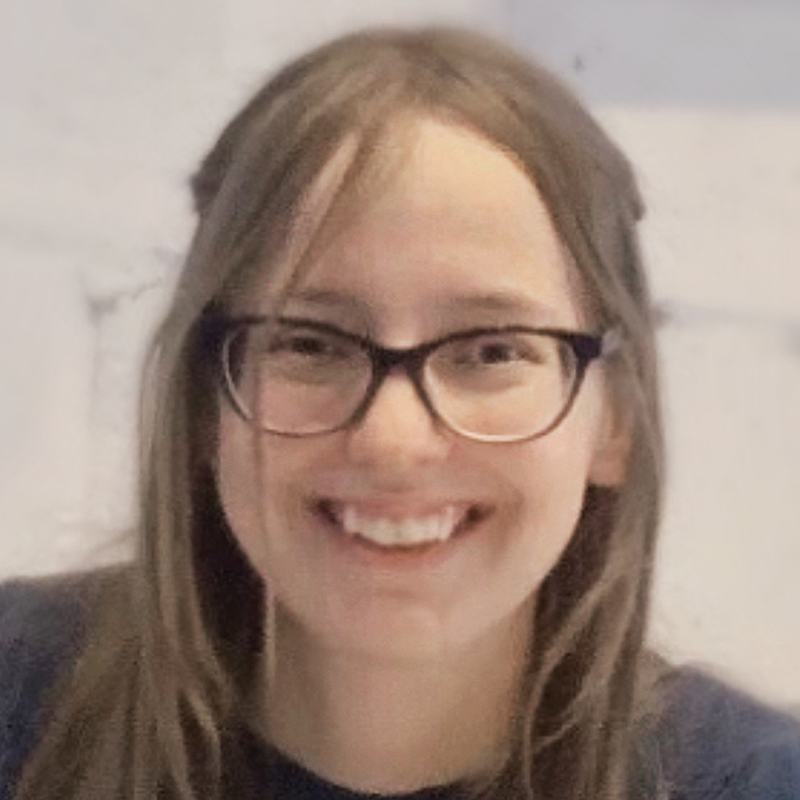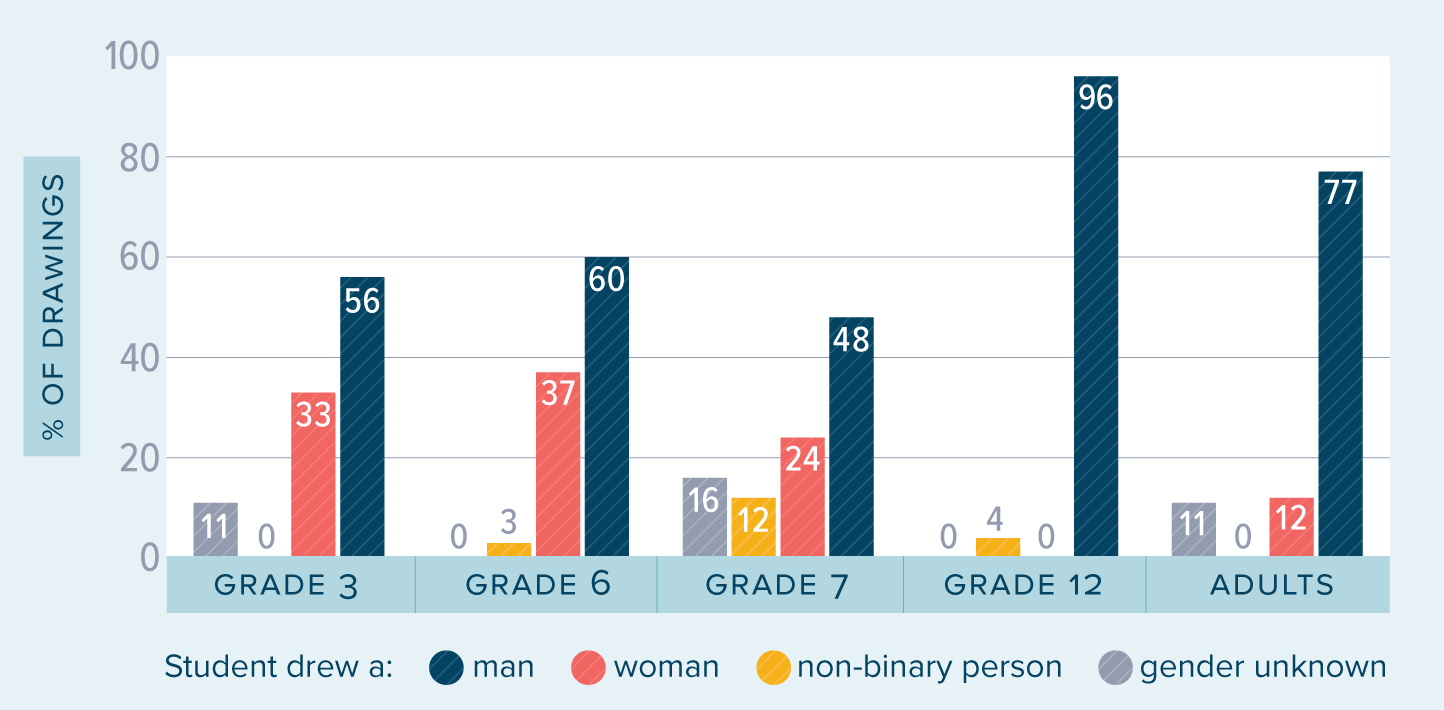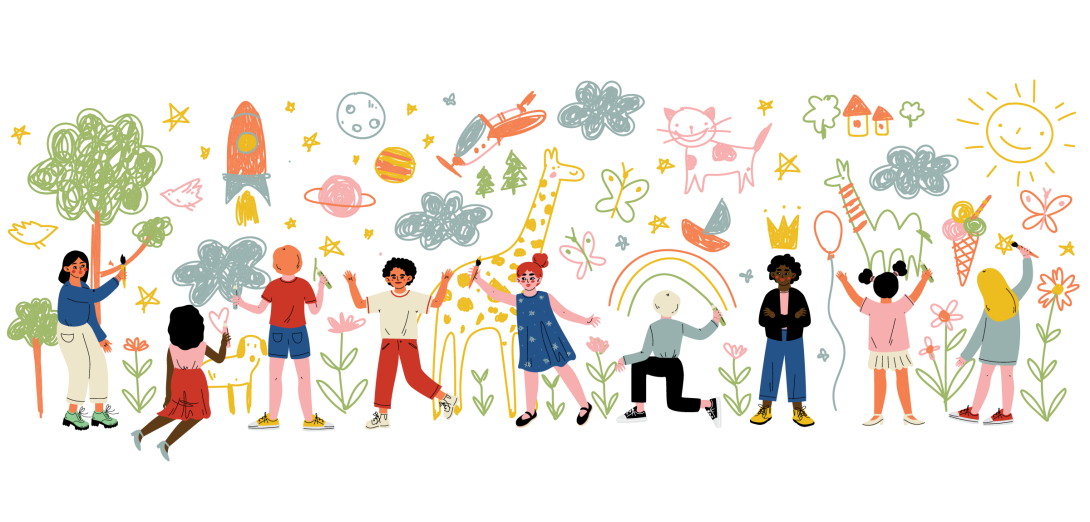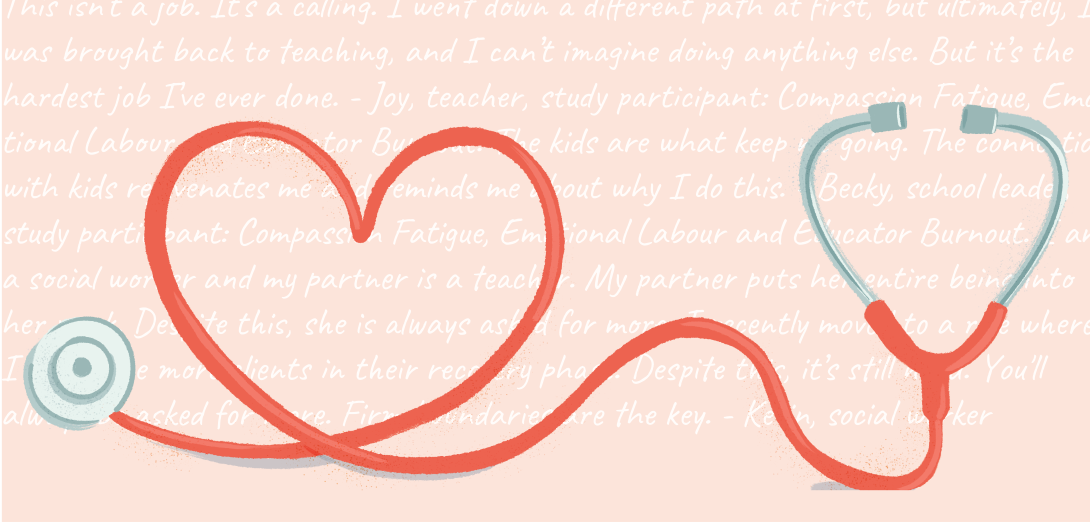Draw me an Albertan.
It’s a simple activity that reveals a great deal about how our students view our provincial community and their place within it. Who they draw—and who they don’t depict—tells us who students feel are the typical, quintessential and most influential members of Alberta society.
As part of our Becoming Albertan project, we’ve been conducting the exercise in schools across the province. From Camrose to Calgary, Spruce Grove to Lethbridge, we’ve seen younger students draw everything from celebrities (Connor McDavid and Jann Arden top the list) to their parents or teachers. Many children seem to view their province through a personal and localized lens.
The older they get, however, the more likely students are to sketch the more
conventional caricatures of Alberta culture. Much like the adults in our broader Com-mon Ground study, teenagers begin to view Alberta politics through a “wild west” lens, perceiving the typical Albertan as a rancher, farmer, or oil and gas worker. Nearly a third of 12th graders in our study made explicit references to their drawn Albertan being a “redneck.” No such references were made at any of the other grade levels. As they progress from Grade 6 to Grade 12, fewer depict women, Indigenous people, people of colour, folks in urban settings or family members when asked to draw an Albertan.
This narrowing view of Alberta identity is concerning to those committed to enhancing equity, diversity and inclusion in this province. If students don’t see themselves or people like them as typical members of Alberta society (only two of 87 participants in our pilot study drew themselves), that can impact their willingness to engage in community activities and discourse. In that sense, the results of our preliminary research are worrying to those who want all of our youth to see themselves in Alberta’s future.
Through our Becoming Albertan study, we want to know why this type of socialization occurs. And we need teachers’ help to understand how youth develop the common view of Alberta as Canada’s “wild west.”
Do children growing up in rural settings have a different conception of the average Albertan than children from urban settings? Do larger school settings encourage different understandings of what it means to be an Albertan? At what precise point do youth internalize the “cowboy myth,” and what are the sources of this shift in thinking? Through this research, we are working toward a greater understanding of how students' personal identities align with community norms across Alberta.
Forging partnerships with schools, our Becoming Albertan study will improve the quality of education in Alberta by providing teachers with resources that will help them understand how their students see themselves in relation to the larger community. Compiling insights from classrooms across the country, we will work with teachers to develop curriculum supports for starting conversations about how to build a more inclusive vision of what it means to be Albertan.
Together, we can provide students with key skills such as critical thinking, problem solving and historical thinking needed to navigate their place in Alberta society. What is more, the study will reveal who is left out when we think about Alberta and what the ramifications are of thinking about Alberta through the wild west lens.
A team of university researchers and Alberta teachers, we have designed an
all-in-one package of short videos, consent forms and other materials to help teachers engage students in the “draw me an Albertan” activity and conduct follow-up conversations about identity. Funded by the Alberta Teachers’ Association and approved by the University of Alberta Research Ethics Board, the project puts students’ safety and learning in the foreground.
Project participationIf you are interested in being a part of the Becoming Albertan project, please contact Dr. Jared Wesley at jwesley@ualberta.ca or visit www.commongroundpolitics.ca/becoming-albertan for more info. |

Jared Wesley is a professor of political science at the University of Alberta. His Common Ground team studies the norms and values that drive public opinion in the province.

Rissa Reist is a PhD candidate in political science at the University of Alberta. Her research focuses on the relationship between political humour and settler–colonial violence.



